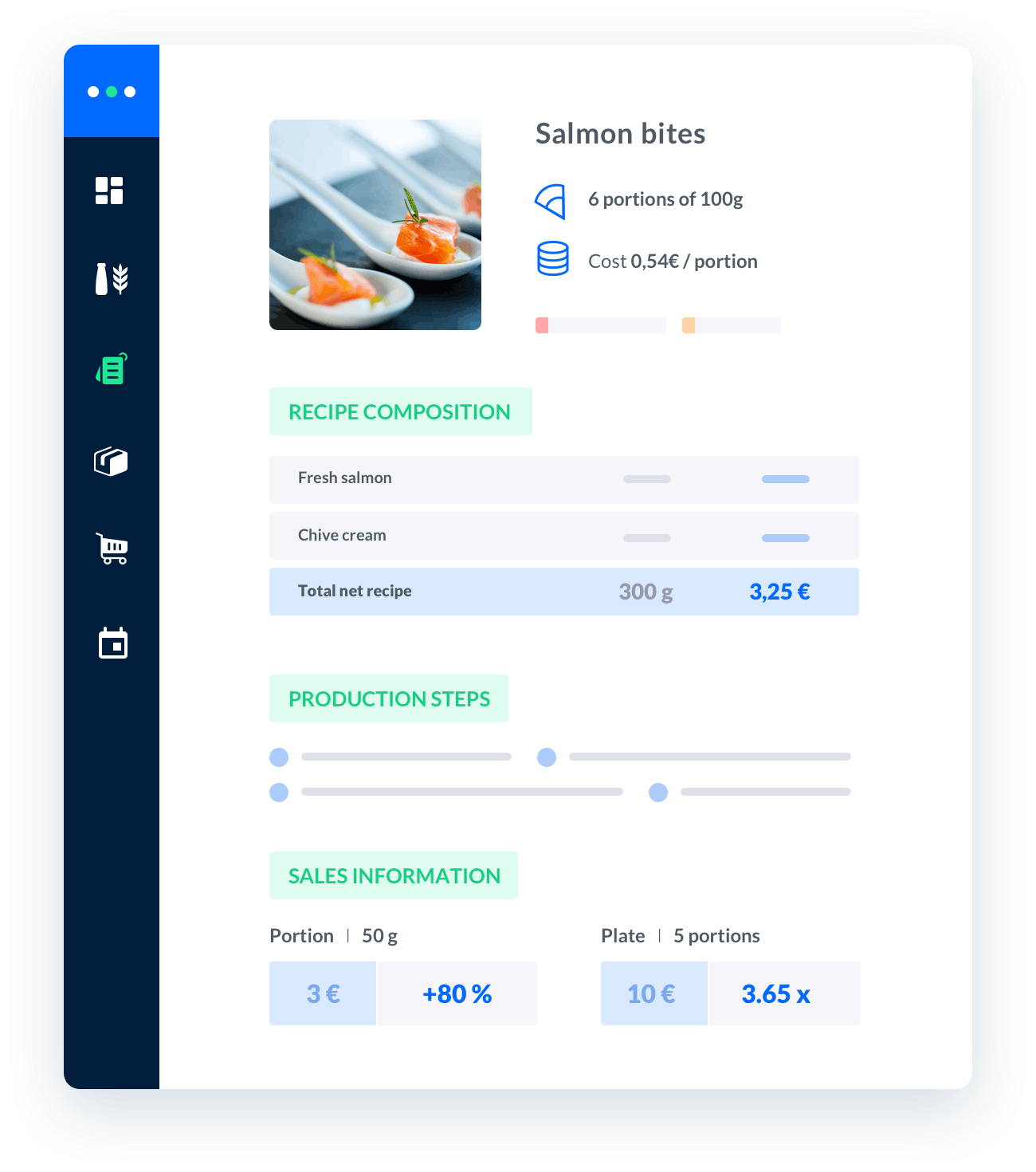restaurant startup costs calculator
In this comprehensive guide, we will explore the various factors to consider when calculating the startup costs for a restaurant.Whether you are a seasoned restaurateur or a budding entrepreneur in the catering industry, understanding the financial aspects of opening a restaurant is crucial for success.

Melba: the food cost app to optimize the profitability of your restaurant
Discover how to optimize the profitability of your restaurant with melba

The ultimate guide to food cost restaurant
Learn more about the food cost basis and how to reduce your food cost percentage
In this comprehensive guide, we will explore the various factors to consider when calculating the startup costs for a restaurant. Whether you are a seasoned restaurateur or a budding entrepreneur in the catering industry, understanding the financial aspects of opening a restaurant is crucial for success. By breaking down the costs into different categories, we can provide you with a clearer picture of what to expect.
1. Initial Costs
When starting a restaurant, you will encounter several initial costs that are necessary to get your establishment up and running. These costs include:
1.1. Location and Lease
Choosing the right location for your restaurant is essential. Consider factors like foot traffic, visibility, and accessibility. Additionally, you will need to factor in the cost of leasing the space, which can vary based on location and size.
1.2. Kitchen Equipment
Investing in high-quality kitchen equipment is vital for the smooth operation of your restaurant. This includes ovens, refrigerators, fryers, and more. The cost of kitchen equipment can vary depending on the size and complexity of your menu.
1.3. Dining Area Setup
Creating an inviting and comfortable dining area is crucial for attracting customers. This includes purchasing tables, chairs, lighting fixtures, and décor items. Remember to allocate a portion of your budget for the interior design and ambiance of your restaurant.
1.4. Licenses and Permits
Before opening your restaurant, you will need to obtain various licenses and permits, such as a liquor license, health department permits, and business permits. These costs can vary depending on your location and the specific requirements of your establishment.
1.5. Technology and POS Systems
Investing in technology, such as a point-of-sale (POS) system, is essential for efficient operations. A POS system can help you manage orders, track inventory, and process payments. Be sure to consider the cost of purchasing or leasing this technology.
2. Operational Costs
Once your restaurant is up and running, you will encounter ongoing operational costs. These costs include:
2.1. Payroll and Staffing
Employing a skilled and efficient team is crucial for the success of your restaurant. Consider the costs of hiring and training staff, as well as ongoing payroll expenses. Additionally, remember to account for employee benefits and taxes.
2.2. Food and Beverage Inventory
Managing the cost of your food and beverage inventory is essential for maintaining profit margins. Consider the costs of purchasing ingredients, beverages, and other necessary supplies. Implementing inventory management systems can help minimize waste and control costs.
2.3. Marketing and Advertising
Promoting your restaurant is crucial for attracting customers. Allocate a portion of your budget to marketing and advertising efforts, such as social media campaigns, website development, and print materials. Consider partnering with local influencers or food bloggers to increase your restaurant's visibility.
2.4. Utilities and Rent
Monthly expenses, such as rent, utilities (electricity, water, gas), and insurance, are ongoing operational costs. These costs can vary depending on the size of your establishment and the location.
2.5. Maintenance and Repairs
Regular maintenance and repairs are essential for keeping your restaurant in top shape. Consider budgeting for routine maintenance, equipment repairs, and unexpected expenses that may arise.
3. Funding Options
Now that we have discussed the various costs involved in opening and operating a restaurant, let's explore some common funding options:
3.1. Personal Savings and Investments
Many restaurant owners use their personal savings or investments to fund their startup costs. This option allows you to maintain control over your business and avoid debt. However, it may require significant personal financial resources.
3.2. Small Business Loans
Obtaining a small business loan from a bank or financial institution is a common funding option for restaurant startups. Be prepared to provide a solid business plan, financial projections, and collateral to secure the loan.
3.3. Investors and Partnerships
Seeking investors or entering into partnerships can provide additional funding for your restaurant. This option may require sharing profits and decision-making authority, but it can also bring valuable expertise and support.
3.4. Crowdfunding
Crowdfunding platforms allow you to raise funds from a large number of people who believe in your restaurant concept. Create an engaging campaign and offer unique rewards to attract potential backers.
3.5. Grants and Contests
Some organizations and institutions offer grants or hold contests specifically for restaurant startups. Research and apply for these opportunities to secure funding without the need for repayment.
Remember, every restaurant is unique, and the startup costs can vary significantly depending on factors such as location, concept, and size. It is crucial to conduct thorough research, seek professional advice, and create a detailed budget to ensure the financial success of your restaurant venture.






